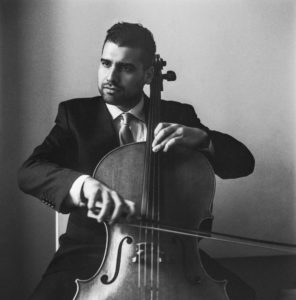Between Turkey and Poland

16 May 2019, 7 p.m.
FCUM Concert Hall
Performers:
Can Kehri | cello
Jerzy Semkow Polish Sinfonia Iuventus Orchestra
Can Okan | conductor
Programme:
Cemal Reşit Rey – Turkey (a selection, movements 3, 7 and 10),
Hasan Ferid Alnar – Cello Concerto (the first performance outside Turkey)
***
Pyotr Tchaikovsky – Symphony No 3 Polish
Pyotr Tchaikovsky’s Third Symphony came to be nicknamed ‘Polish’. While this results from the fact that a polonaise rhythm was used in the finale, one has to remember that this dance was very popular in Tsarist Russia, symbolising universal court splendour rather than its country of origin. The thirty-five-old composer’s spectacular piece is characterised by a number of unique features – for instance, this is the only symphony in his oeuvre written in a major key. His preference would go to elegiac moods (so even this Symphony in D Major starts… with a ‘funeral march’ in D minor). The work also shows a less conventional five-movement structure, which seems to be a reference to earlier divertimento forms (which is suggested by the presence of yet another dance component: in addition to the polonaise, there is also a scherzo/waltz in movement 2).
The May concert will also provide an opportunity to explore Turkish twentieth-century music. A prominent figure on the country’s musical scene was Cemal Reşit Rey, regarded as a pioneer of a movement which brought into Turkey artistic music influenced by Western trends in the wake of the country’s ‘Westernisation’ under the rule of Kemal Atatürk. In his rich oeuvre, he gave a special place to stage works – operas and operettas, which enjoy immense popularity. One of the prominent pieces of orchestral music is his symphonic rhapsody entitled Türkiye (Turkey), in two colourful images contrasted by tempo and nature, and influenced by motifs from Turkey’s native music – the three episodes will be performed. Together with four other composers, Rey co-founded an informal group known as the ‘Turkish Five’ – one of the others being his peer Hasan Ferit Alnar, who was particularly fascinated by the possibilities of stylisation and harmonisation of traditional music and the use of native instruments; one of the results of this fascination was his concerto for a Turkish zither – kanun, still very popular nowadays. Of more universal nature is Alnar’s Cello Concerto, a melodious and expressive piece which includes themes with scales and rhythms typical for the Orient. During the concert on 16 May, the concerto will see its first performance outside Turkey.
The solo part will be performed by a Turkish cellist Can Kehri, a summa cum laude graduate of Professor Reşit Erzin’s cello class at the Istanbul Conservatory, and Professor Tomasz Strahl’s student at the Fryderyk Chopin University of Music. As a soloist and chamber musician, he is also a member of the cello section of the Jerzy Semkow Polish Sinfonia Iuventus Orchestra. The concert will be conducted by Can Okan, a recognised young-generation Turkish conductor and pianist.
There is an important Turkish holiday of 19 May connected to the nominated Kemalem Atatürk, a Youth and Sports Day. The concert is under patronage of the Embassy of the Republic of Turkey in Poland and it contributes to the celebration of an important anniversary of centenary of military campaign of 1919 that was the beginning of a new statehood after the fall of the Ottoman Empire.
Free admission with ticket resarvation!
magdalena.politylo@mfa.gov.tr
By Piotr Maculewicz
